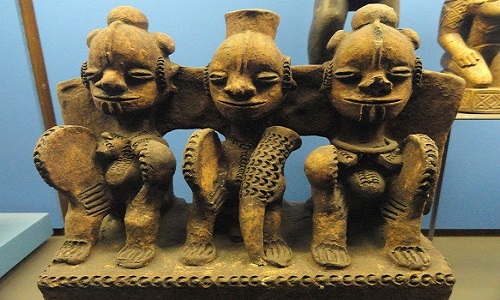17,078 total views, 4 views today
A taboo is an act, action, custom or behaviour that is highly forbidden, prohibited on the basis of sacred social or religious meaning attached to it. Taboo is a Polynesian term ‘tapu’ which means forbidden. It is a universal phenomenon present in all societies. Some are gender-based; some have religious affiliation while some are cultural. In the society, taboos are usually dreaded by people. Some practices are set aside for spiritual or religious leaders and on the other hand, are highly forbidden by other members of the society. Many of these taboos have been eroded with the coming of Europeans and Christianity.
Taboos are constructed based on belief systems, values and historical events. They are rooted in the traditional culture and religious belief systems. Formulation Cultural taboos are formulated by those in the past generation and taught to the new generation while religious taboos are rooted in “gods”, “deity” or “God”. Breaking a taboo attracts punishments and sometimes death. Taboos have many functions in a society.
Definition of A Totem
This is a common taboo term. A totem could be a sacred being, object, animal, symbol used as an emblem for a particular individual, family or a society. In some parts of the country, certain animals are forbidden to be eaten by members of the society. An emblem of “cross”, holy books, white or red garments are seen as totem to some members of a religion.
- Regulation of Behaviour
Taboos regulate behaviour of members of a society. A good example is the incest taboo which restricts sexual behaviour among relatives and prevent rancor among family members. On a general note, taboos help people to know the improper behaviour in a society and then guide them against these behaviours. People will desist from such behaviours because of the sanctions and punishments attached to them.
- Set Moral Boundaries
Taboos serve as a means to differentiate the acceptable behaviour from the unacceptable ones. It makes people have a form of decency and determines the characters of people in a society. Taboos are synonymous to the police and law-regulator system that helps to maintain peace, order and moral principles.
- Ensures Safety and Security
Most taboos are tailored towards the maintenance of general well-being of people. Total restriction from some forbidden behaviours or acts help in promotion of hygiene and makes an individual to be safe and secured from danger, illness and disease. Taboos, such as restriction of people from sitting on mortals help to guide against uncleanness. The prohibition of children from putting hands in the rain or bathing in the rain is to prevent them from cold. Peace will reign in a community where taboos are obeyed.
- Respect for Elders and Spiritual Leaders
Religious and social taboos serve as a means to sanctify shrines and to give respect to the elders, religion and spiritual leaders. Taboos that encourage respect for people include; shaking hands when greeting elders, looking into the eyes of deity or gods, killing of snakes in some community, dropping of the Bible on the ground, among others. Religious taboos make the members of the society have a personal relationship with the spiritual leaders, thereby, moving them closer to their creator.
In conclusion, some people are not familiar with the taboos because they are no more in their fatherlands. Thus, the need to pass it on to them. A stranger must be told of the taboos associated to a society because ignorance is not an excuse for violation of taboos. The grievous punishments attached to violating some forms of taboos should be less-grievous. Taboos are important foundation of a culture.
